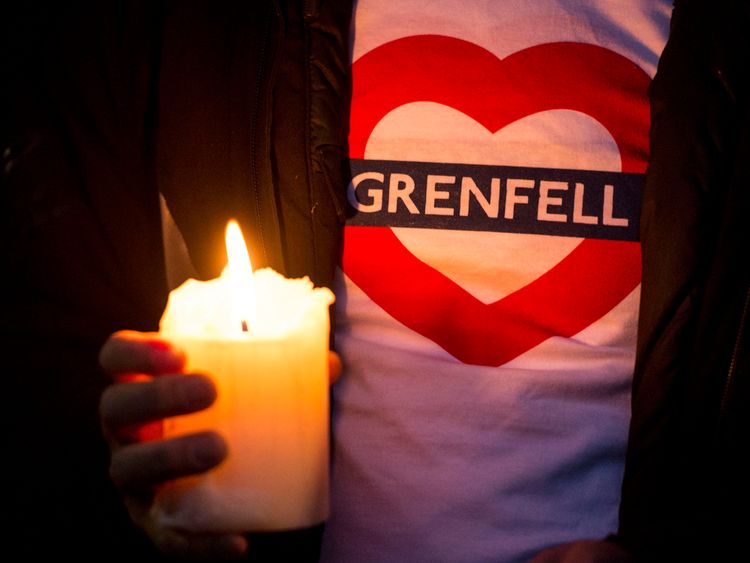The Equality and Human Rights Commission (EHRC) has announced it is to interview survivors and those affected by the disaster to find out if authorities failed in their human rights obligations.
The body will also assess whether the Royal Borough of Kensington and Chelsea, which owned the building, failed in its duty to protect life and provide safe housing.
The fire tore through the Grenfell block on 14 June, killing 71 people, spreading quickly because of flammable material installed during a recent refurbishment.
An official inquiry will be led by Sir Martin Moore-Bick, but its scope has been criticised, particularly the decision not to look at social housing.
If Sir Martin's report, due in the spring, is delayed as officials fear, the EHRC's observations could be released before his, with their release date set for April 2018.
But the commission said it is not intended to be adversarial.
EHRC chairman David Isaac told the Observer: "It's to be complementary to it. We will be calling on experts, particularly legal experts, looking at the international human rights obligations, asking for submissions from a whole variety of stakeholders.
"It's not a parallel inquiry. It's to look at what we think is important and what's missing from the official inquiry, which is the human rights and equalities perspective."
The Government will have to respond to a petition launched by families of the victims and the Grenfell United group that drew more than 10,000 signatures, including the support of Adele.
The petition calls for an overhaul of the inquiry.
It calls on Prime Minister Theresa May to install a more diverse range of people to sit on a panel with Sir Martin.
Mr Isaac said: "We are the UK's national human rights body and we have a statutory duty to promote equality and human rights.
"We think the human rights dimension to Grenfell Tower is absolutely fundamental and is currently overlooked.
"Grenfell for most people in this country, particularly in the way the Government has reacted, is a pretty defining moment in terms of how inequality is perceived."



